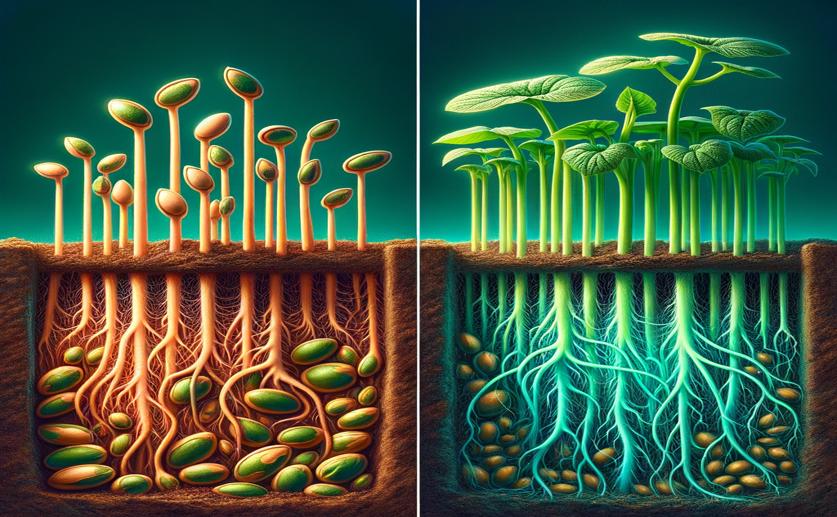
How Salt Levels Affect Pumpkin Seed Sprouting and Growth
Greg Howard
24th March, 2024

Image Source: Natural Science News, 2024
Key Findings
- Study at Erciyes University found pumpkin seeds' growth is hindered by salt
- Develi pumpkin seeds showed resistance to salt, unlike Hybrid seeds
- Salt stress impacts seed germination time and overall seedling health
AgricultureBiochemPlant Science
References
Main Study
1) Effect of different salinity on seed germination, growth parameters and biochemical contents of pumpkin (Cucurbita pepo L.) seeds cultivars.
Published 22nd March, 2024
https://doi.org/10.1038/s41598-024-55325-w
Related Studies
2) Salinity-Induced Physiological Changes in Pea (Pisum sativum L.): Germination Rate, Biomass Accumulation, Relative Water Content, Seedling Vigor and Salt Tolerance Index.
3) The Effects of Salt Stress on Germination, Seedling Growth and Biochemical Responses of Tunisian Squash (Cucurbita maxima Duchesne) Germplasm.
4) Microbial amelioration of salinity stress in HD 2967 wheat cultivar by up-regulating antioxidant defense.



 8th March, 2024 | Jenn Hoskins
8th March, 2024 | Jenn Hoskins